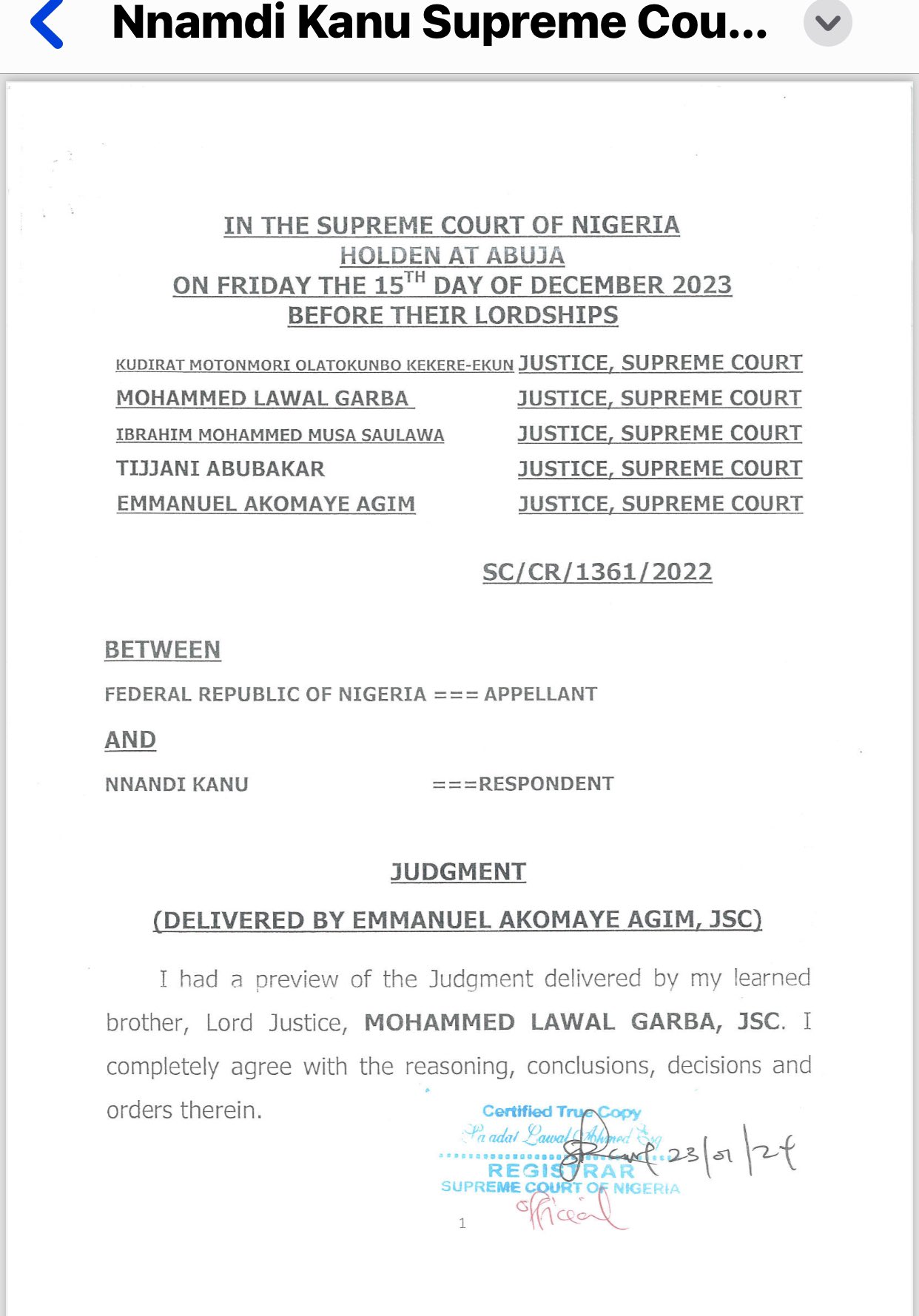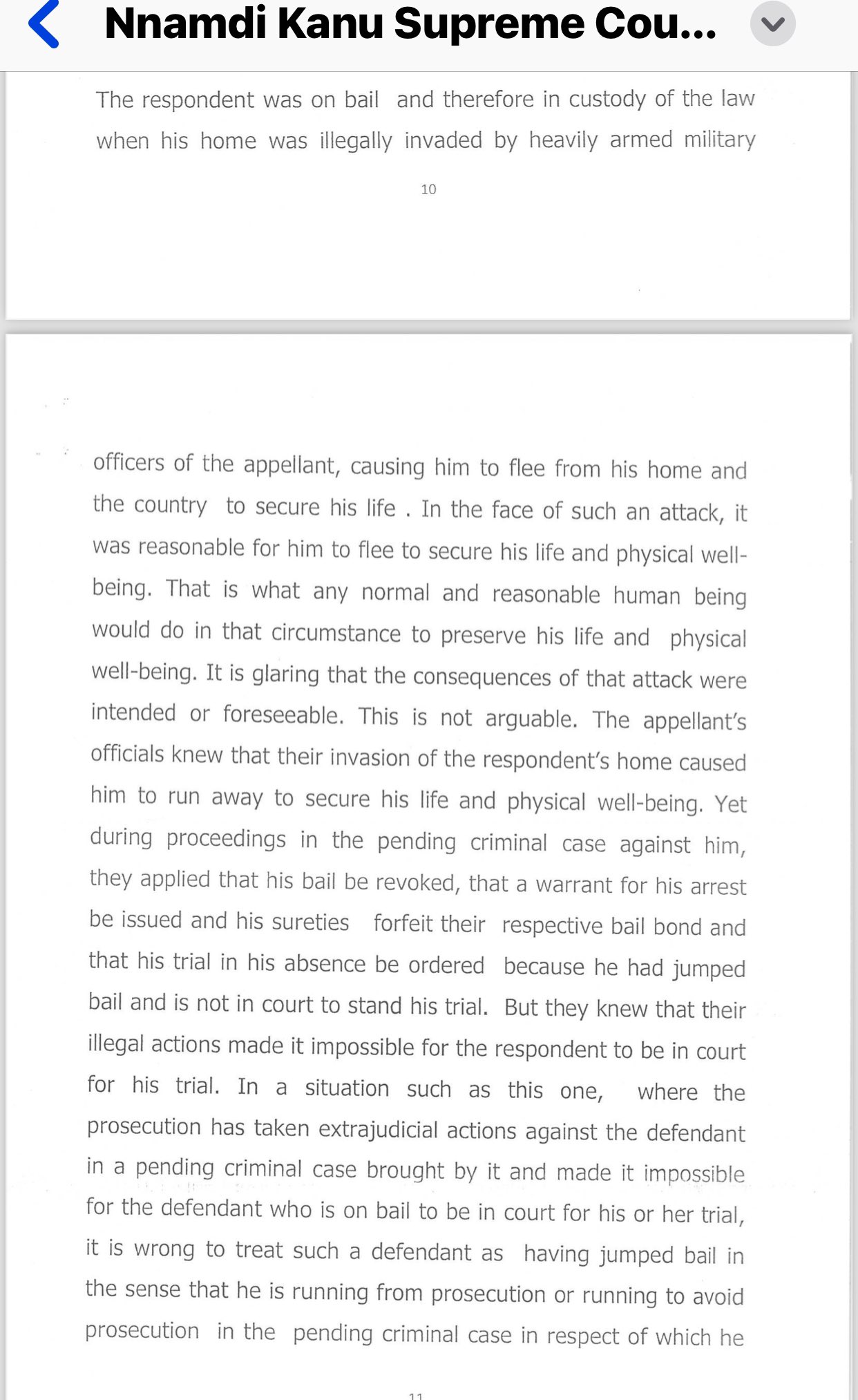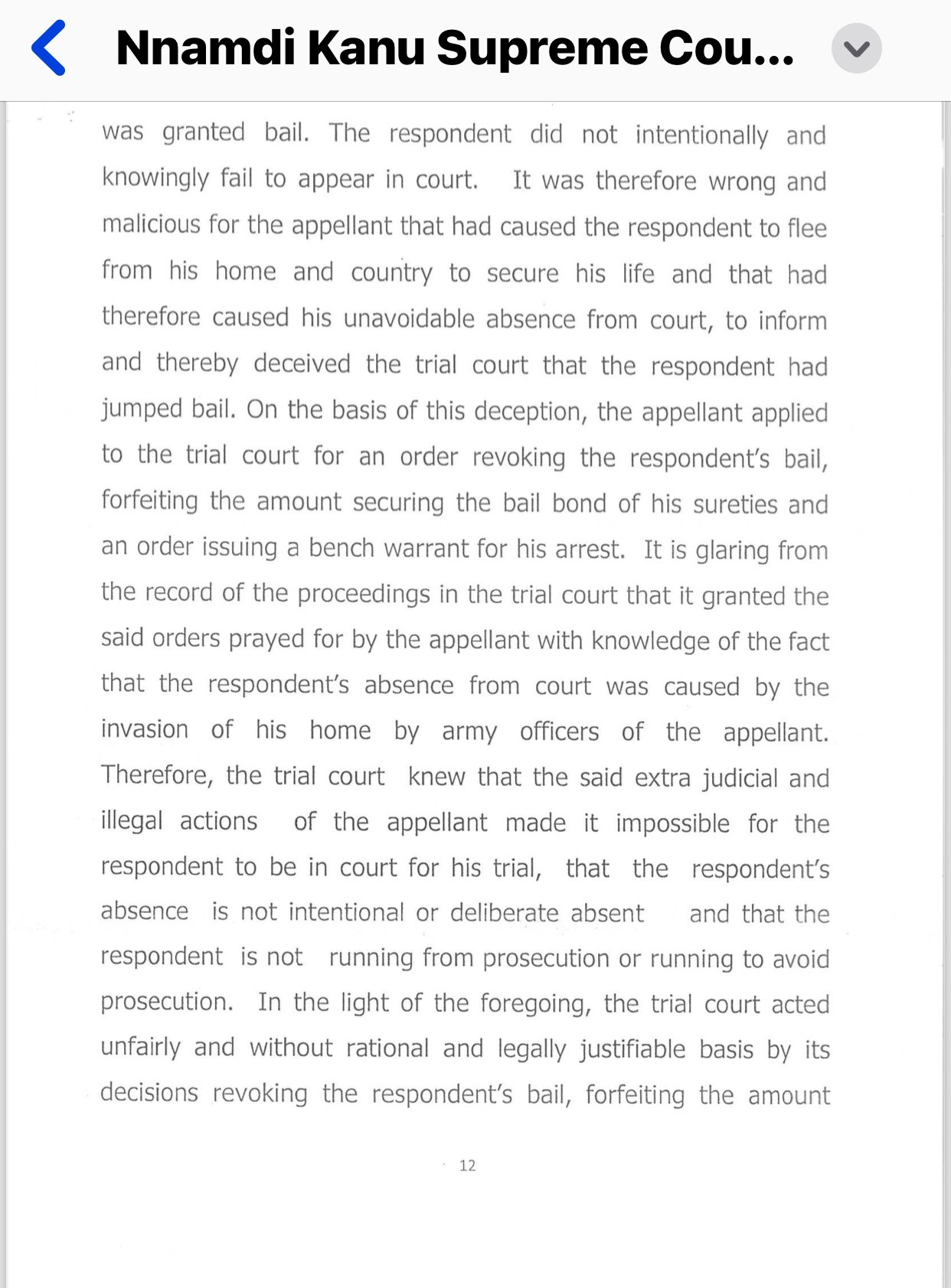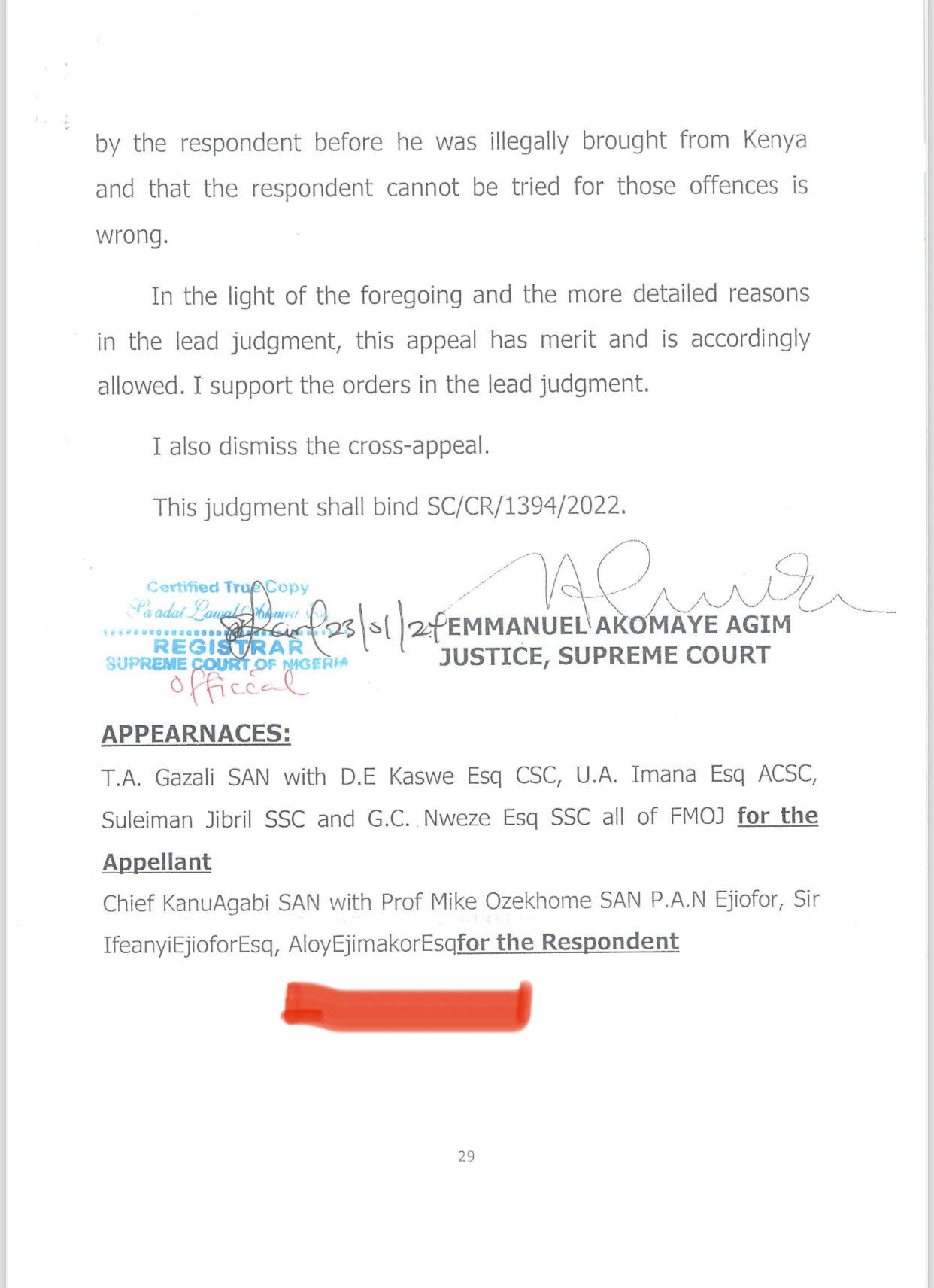Supreme court admits Nnamdi Kanu bail should not have been revoked
PRESS RELEASE:
27th January 2024
From: ALOY EJIMAKOR
TO: All Media/General Public
RE: The Supreme Court has finally settled the matter that Mazi Nnamdi Kanu never jumped bail and that his bail should not have been revoked
It will be recalled that consequent upon the lethal military invasion of his royal and ancestral home in Umuahia, Abia State in September 2017, Mazi Nnamdi Kanu was forced into exile and thus did not attend his trial on the next scheduled date and thereafter.
From then onwards to June 2021 when he was renditioned from Kenya to Nigeria, there has been a robust public debate as to whether he jumped bail or not. As Of Counsel, I had joined in this debate and always made it clear that Nnamdi Kanu, in the unique circumstance of the military invasion, did not jump bail. I had also written well-publicized legal treatises, maintaining that this self-evident truth will be proved and confirmed in Court in due course of time.
The first judicial confirmation came in January 2022 when, in a landmark judgment, the High Court of Abia State declared that the said military invasion was a flagrant violation of Kanu’s constitutional rights, consequent upon the Court awarded him One Billion Naira in damages and public apology.
Following this judgment, I had issued a public Legal Notice warning all and sundry to thenceforth cease and desist from peddling the falsehood that Nnamdi Kanu had jumped bail. Whereas, vast majorities of the mainstream and social media had complied, some malicious traducers and elements from the federal government persisted with the defamatory bail-jumping narrative.
Ultimately, on 15th December 2023, the second and final judicial confirmation brought closure to this bail-jumping saga when the Supreme Court – in Federal Republic of Nigeria versus Nnamdi Kanu – unequivocally ruled that Kanu never jumped bail. The details of the judgment, quoted verbatim, are as follows, in verbatim:
“The respondent (Nnamdi Kanu) was on bail and therefore in custody of the law when his home was illegally invaded by heavily armed military officers of the appellant (Federal Republic of Nigeria) causing him to flee from his home and the country to secure his life.
“In the face of such an attack, it was responsible for him to flee to secure his life and physical well being. That is what any normal and reasonable human being would do in that circumstance to preserve his life and physical well-being.
“It is glaring that the consequences of that attack were intended or foreseeable. This is not arguable. The appellant’s officials knew that their invasion of the respondent’s home caused him to run away to secure his life and physical well-being. Yet during proceedings in the pending criminal case against him, they applied that his bail be revoked, that a warrant for his arrest be issued and his sureties forfeit their respective bail bond and that his trial in his absence be ordered because he had jumped bail and is not in court to stand his trial.
“But they knew that their illegal actions made it impossible for the respondent to be in court for his trial. In a situation such as this one, where the prosecution has taken extrajudicial actions against the defendant in a pending criminal case brought by it and made it impossible for the defendant who is on bail to be in court for his or her trial, it is wrong to treat such a defendant as having jumped bail in the sense that he is running from prosecution or running to avoid prosecution in the pending criminal case in respect of which he was granted bail.
“The respondent did not intentionally and knowingly fail to appear in court. It was therefore wrong and malicious for the appellant that had caused the respondent to flee from his home and country to secure his life and that had therefore caused his unavoidable absence from court, to inform and thereby deceived the trial court that the respondent had jumped bail.















Add Comment